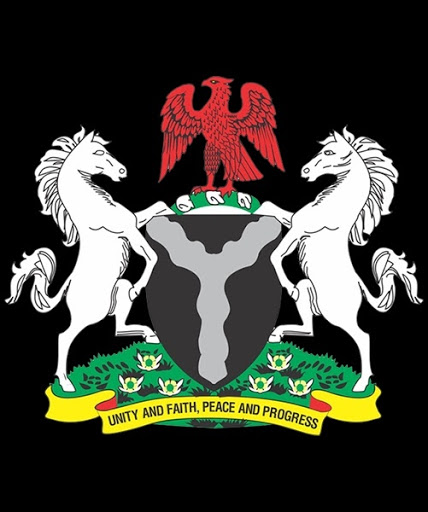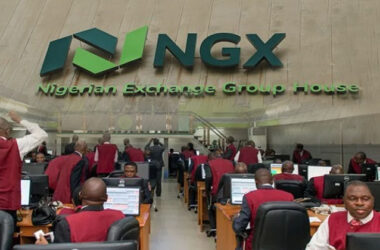Small and Medium Enterprises (SMEs) are often referred to as the backbone of any economy, and in Nigeria, they play an even more crucial role. With over 40 million SMEs contributing nearly 50% to the country’s GDP and accounting for about 80% of employment, their importance cannot be overstated. However, despite their significance, SMEs in Nigeria face an uphill battle, especially in the current economic landscape. Persistent economic challenges, ranging from inflation and fluctuating exchange rates to insufficient infrastructure and access to finance, have made it increasingly difficult for these businesses to thrive.
Inflation and Rising Costs
One of the most pressing issues for Nigerian SMEs today is inflation. The country has experienced rising inflation rates for years, exacerbated by recent global supply chain disruptions and the effects of the COVID-19 pandemic. As of 2023, inflation continues to erode the purchasing power of both businesses and consumers. The rising cost of raw materials, transportation, and energy has significantly increased the operational costs for SMEs.
Business owners are finding it increasingly difficult to maintain profitability without passing these costs onto consumers, who are already struggling with rising living expenses. For businesses that rely on imported goods or materials, the depreciation of the naira has further worsened the situation, driving up the costs of imports and leading to unsustainable price hikes.
Access to Finance: A Persistent Challenge
Despite government efforts to promote SME growth through various funding schemes and initiatives, access to finance remains one of the biggest hurdles for small businesses in Nigeria. Commercial banks are often reluctant to lend to SMEs due to perceived high risks, limited collateral, and a lack of credit history. As a result, many businesses rely on informal lending or microfinance institutions, which often come with higher interest rates and shorter repayment periods.
The Central Bank of Nigeria (CBN) has introduced several programs aimed at improving SME access to finance, such as the SME Credit Guarantee Scheme and the Development Bank of Nigeria (DBN). However, the impact of these initiatives has been limited, as many SMEs either lack the awareness or face difficulties in meeting the eligibility requirements. Without easy access to affordable finance, SMEs are unable to expand, invest in new technologies, or weather the shocks caused by economic volatility.
Infrastructure and Power Supply Deficiencies
Another significant challenge is Nigeria’s inadequate infrastructure, particularly in terms of electricity and transportation. SMEs often bear the brunt of the country’s power supply issues, with frequent blackouts and high costs of generating alternative power. Many business owners are forced to rely on diesel-powered generators, which adds to their operational costs and reduces profit margins.
Furthermore, poor road networks and transportation infrastructure hinder the movement of goods and services, especially for SMEs operating in rural areas. This not only increases the cost of doing business but also limits access to markets, particularly for small businesses that rely on interstate trade.
Government Policies and Support
The Nigerian government has recognized the importance of SMEs in driving economic growth and job creation, and several initiatives have been rolled out to support this sector. Programs like the National MSME Clinics, which offer one-stop shops for business owners to access regulatory services, and the N75 billion MSME Survival Fund introduced during the pandemic, have provided some relief.
However, the implementation of policies is often inconsistent, and bureaucratic bottlenecks can hinder the ability of SMEs to take full advantage of these programs. In addition, many SMEs struggle with navigating the complex tax regime in Nigeria. Multiple layers of taxes, levies, and regulatory fees imposed by federal, state, and local governments can overwhelm small businesses, making it difficult for them to remain compliant and profitable.
The Role of Technology
Amid these challenges, technology is emerging as a lifeline for Nigerian SMEs. Digital platforms, e-commerce, and fintech solutions are helping small businesses reach wider markets and improve their operations. The rise of mobile money services and digital payment platforms like Flutterwave and Paystack has revolutionized the way SMEs conduct transactions, making it easier for them to accept payments and manage their finances.
E-commerce platforms such as Jumia, Konga, and more recently, social media marketplaces, have provided SMEs with the tools to market and sell their products beyond their immediate geographic locations. For many small businesses, embracing technology is no longer an option but a necessity for survival in an increasingly competitive and digital world.
The Path Forward: Resilience and Adaptation
Despite the numerous challenges, Nigerian SMEs have proven to be incredibly resilient. Entrepreneurs across the country have displayed a strong ability to adapt, finding creative ways to keep their businesses afloat, even in tough economic conditions. Many have turned to innovation, adopting flexible business models, diversifying their revenue streams, and leveraging technology to stay relevant.
To ensure the long-term success of SMEs, more robust and targeted support from both the government and private sector is needed. This includes expanding access to finance through simplified and inclusive lending programs, improving infrastructure, particularly power supply, and providing clearer, more consistent policy direction that addresses the unique needs of small businesses.
Conclusion
Navigating Nigeria’s tough economic waters is a daunting task for SMEs, but their resilience and ingenuity continue to drive the sector forward. With the right mix of policies, financing, and infrastructure support, Nigeria’s SMEs can not only survive but also thrive, serving as the backbone of the nation’s economic recovery and growth. As they adapt to the challenges posed by inflation, access to finance, and poor infrastructure, these small businesses will remain key to unlocking the vast potential of Nigeria’s economy.








